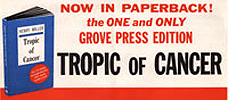Reviews
Mary Bronstein
USA, 2008
Credits
Review by Rumsey Taylor
Posted on 25 March 2008
Source 35mm Print
Categories The 2008 South by Southwest Film Festival
Yeast is shot in 1.33:1, much of it comprised of close-ups of faces—faces screaming or shouting at each other. Someone will slap another person, and the composition falters as if the camera itself is recoiling from the blow. The film doesn’t contain landscapes in the traditional sense, even though an early scene finds two friends on a camping trip. This excursion does little to distract the larger, overbearing issue at hand, that of the price of platonic intimacy. To be truly acquainted with someone else is to know what makes her angry, to know how to manipulate her into the sort of friend you desire. Yeast is about this, and its inverse: how your friends are almost exclusively capable of founding your most troublesome relationships and exploiting your every insecurity.
The film marks Mary Bronstein’s debut as a writer-director, and it distinctly recalls her husband Ronald’s Frownland, which premiered at SXSW in 2007, and in which Mary acted. (Ronald was also this film’s assistant director and editor.) The films are thematic cousins, brutal in their exploitation of unpleasant human characteristics and humorous only in an anxious sense—laughing is appropriate at times, if only because no other response seems adequate. Watching either is a trying experience—they’re films one is to endure rather than enjoy. They engage you willfully and leave you at peace in your own world with a built-up immunity to your own interpersonal hardships.
Mary plays Rachel, a young woman whose relationships are cause for conflict. Her roommate is filthy and disrespectful (from what I can tell, their apartment is small, and they both sleep on mattresses in the same room, which surely only exacerbates their troubles). She has invited her on the aforementioned camping trip with another friend. It’s a chance to get out - to accord each other with space - and although the roommate protests the invitation with silence and ultimately declines, a mutual discomfort persists. Rachel has a pathological need for companionship, from these two girls in particular (both are old friends). She imposes herself upon them, and although she isn’t outwardly uncivil, she erupts caustically when her perception of order is compromised.
None of Rachel’s efforts to reconfigure her relationships seem fruitful, and Yeast has a certain futility to it for this reason. It is a film steeped in cause and without effect, a self-perpetuating stalemate. There is no option for reconciliation, only endurance, both in Rachel’s regularly unsuccessful confrontations and in the viewer as well. Yeast intends expressly to affront, and it does so mercilessly. For this reason it will alienate casual viewers, and I suspect such a response is an appropriate one.
These characters are in their late twenties or early thirties, each juvenile and antagonistic. (When Rachel finally prompts her roommate to address the near roomful of dirty dishes, she inaugurates the chore by cleaning a butcher knife.) There’s the contention that this antagonistic capability lasts much of your life—that this mind state is easy to retreat to. The film posits a narrow emotional spectrum in which dissatisfaction and anger are common responses to virtually any social scenario. Yeast is a necessarily problematic film for this reason; it almost relishes in its crudeness—the more claustrophobic, the louder, and the more aggressive the more audacious and domineering its hostility.
More The 2008 South by Southwest Film Festival
-

Obscene
2007 -

21
2007 -

The Toe Tactic
2008 -

The Order of Myths
2008 -

Baghead
2008 -

Beautiful Losers
2008 -

Paper Covers Rock
2008 -

The Lost Coast
2008 -

Yeast
2008 -

Explicit Ills
2008 -

Natural Causes
2008 -

A Necessary Death
2008 -

Nights and Weekends
2008
We don’t do comments anymore, but you may contact us here or find us on Twitter or Facebook.



